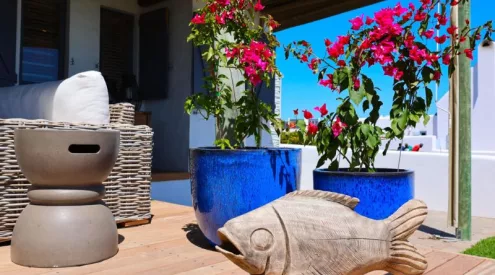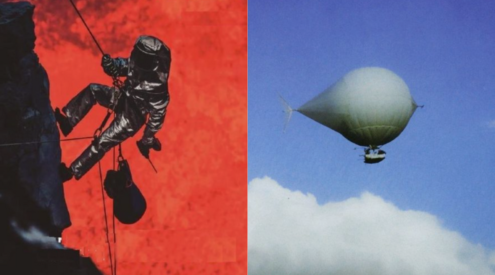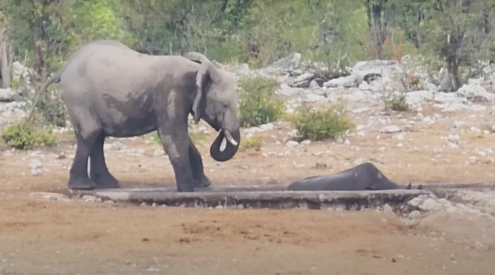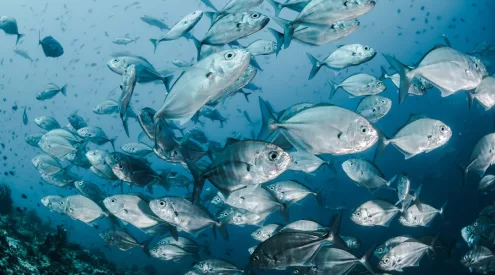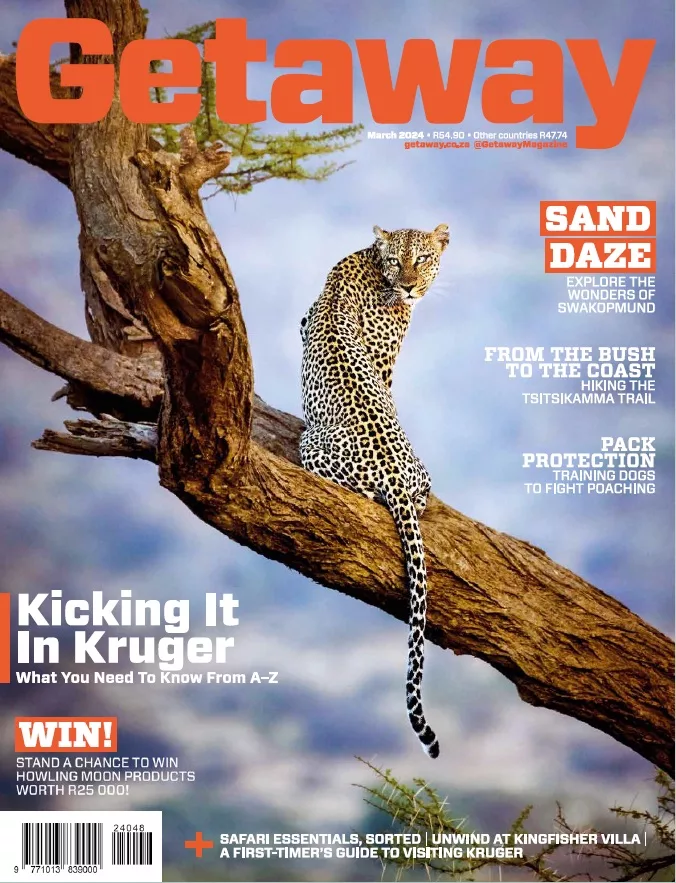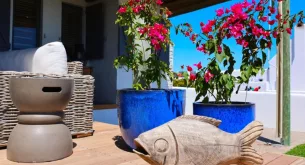On land they look like awkward blobs, sprawled inelegantly across the rocks, smelling bad and doing little to impress. But underwater, seals are altogether different. Streamlined and quick, they treat the cold waters around Duiker Island, near Cape Town’s Hout Bay, as their personal playground and visiting snorkellers as something new to play with. Whether darting to-and-fro between visitors, surprising you with a sneaky brush-past or looking you straight in the eye, seals underwater are pleasurable company.
Before swimming with seals, the first question any sane person should ask is, ‘What about sharks?’ A valid concern when you consider Cape Town’s popularity among great whites. Animal Ocean, organiser of Cape fur seal snorkelling and diving around Duiker Island, negates the danger of sharks with its choice of location: the small island is surrounded by plenty of kelp and shallow waters, which make it an unattractive feeding ground for sharks.
As it’s on the Atlantic side of Cape Point, the water is icy and, unlike seals, humans are inept at dealing with such low temperatures. Steve Benjamin – zoologist, marine guide, skipper, scientific commercial diver and Animal Ocean owner – understands this and comes prepared. Before embarking on the rubber duck that takes you from Hout Bay Harbour to Duiker Island, swimmers are kitted out in seven-millimetre, full-body wetsuits, gloves and booties – not the most comfortable get-up on the bouncy five-minute ride to the island, but life saving when you dive in. The thick wetsuit is slightly buoyant, allowing you to float comfortably at the surface, with seals frolicking just below. Weight belts are available for strong swimmers and scuba gear for those with a diving licence.
Steve’s knowledge and passion for seals is comforting and it’s tempting to succumb to their playful curiosity and round soulful eyes, but don’t forget that they have teeth and claws, so touching is a no-no. Scuba divers get special attention as the seals tend to be more interactive the deeper you swim. However, just bopping on the surface gives precious insight into the underwater behaviour of these unlikely charmers and differentiates seal snorkelling and diving from spotting seals above water, on barge trips to Seal Island (www.nauticatcharters.co.za).
Being in the water with seals is special because it shows you a side to them that is hidden on land and, thanks to companies such as Animal Ocean, it’s both safe and accessible for anyone willing to take the plunge.
Cape fur seal snorkelling and gear costs R400 a person, while scuba diving and gear is R500 a person.
Tel 079-488-5053, email [email protected], www.animalocean.co.za
Need somewhere to stay? Getaway Accommodation has some great places in Hout Bay!
Watch the video
See Getaway’s seal snorkelling video and a listing of charters at tiny.cc/sealswimming.
Photo by Steven Benjamin



